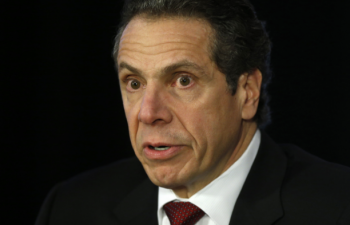GW Pharmaceuticals recently provided an update on its cannabinoid pipeline and its progress in the treatment of epilepsy, diabetes and schizophrenia.
The company has completed a Phase I clinical trial of GWP42006 (CBDV), a product which features the non-psychoactive cannabinoid cannabidivarin (CBDV) extracted from the cannabis plant, for treatment of epilepsy. The Phase I single ascending and multiple dose pharmacokinetic and safety study included 66 healthy subjects, and demonstrated no safety or toxicity signals. CBDV was well tolerated, even at the highest tested dose, and no significant adverse effects were observed.
In pre-clinical models of epilepsy, CBVD has shown the ability to treat seizures with significantly fewer side effects than anti-epileptic drugs currently approved. The drug appears to use a different mechanism of action to currently available treatments. The company said that it plans to commence a Phase II study evaluating the drug, using doses identified in the Phase I study, in patients with epilepsy later this year.
GW has been granted a patent for the use of CBDV in the treatment of epilepsy by the Intellectual Property Office in the UK. The patent covers the use of the drug alone or in combination with standard anti-epileptic drugs or in combination with other cannabinoids, providing the company exclusivity until March 30, 2030. Currently, the same patent is in prosecution with the United States Patent and Trademark Office.
Additionally, Epidiolex, GW’s other epilepsy candidate, has received orphan drug designation from the US Food and Drug Administration (FDA) for the treatment of Dravet syndrome and Lennox-Gastaut syndrome, two infantile onset drug-resistant epilepsy syndromes. Epidiolex contains a plant-derived cannabidiol (CBD) as its active ingredient and is one of the important drugs that GW has been associated with.
The company also provided an update for its GWP42004, which is currently in a Phase II study for treatment of patients with type 2 diabetes. The orally administered product features plant-derived tetrahydrocannabivarin (THCV) as its active ingredient. THCV is distinct from THC, and does not share its intoxicating psychoactive effects.
The 12-week randomized, double blind, placebo controlled study’s primary objective is to compare the change in glycemic control in patients with type 2 diabetes when treated with one of three doses of GWP42004 or placebo as add-on therapy to metformin with the primary endpoint being change from baseline to the end of treatment in mean glycosylated haemoglobin A1c (HbA1c). Additionally, the study will evaluate the safety and tolerability of the drug, and is expected to enroll 200 patients. According to GW, the study is estimated to be completed by the second half of 2015.
GW has also commenced a Phase IIa trial, evaluating its GWP42003 for treatment of patients with schizophrenia. The primary objective of the study is to compare the change in symptom severity in patients with schizophrenia or related psychotic disorder when treated with GWP42003 or placebo, added to first-line anti-psychotic therapy over a period of six weeks as change from the baseline to the end of treatment using the PANSS2 total score. Additionally, the study will evaluate the effect of the drug on quality of life and cognition and will assess the safety and tolerability of GWP42003, a drug with featured purified CBD as its active ingredient. Approximately 80 patients are expected for enrollment, with an estimated completion date of the second half of 2015.
“While much of the recent attention regarding GW has been associated with our childhood epilepsy and cancer pain development programs, we continue to make great progress with our pipeline programs, further demonstrating the breadth of our proprietary cannabinoid product development platform to yield interesting and therapeutically beneficial product candidates,” said. Dr. Stephen Wright, Director of Research and Development, GW Pharmaceutical. “As GW continues to progress its clinical work with cannabinoids, our pipeline has the potential to yield, as it did with Epidiolex, a flow of exciting new product candidates in a wide variety of therapeutic areas.”
GW said its Sativex is in Phase III development for cancer pain, as well as multiple sclerosis spasticity. Additionally, GP42003 extract is in Phase II clinical development for ulcerative colitis and its GWP42002:GWP42003 is in Phase Ib/IIa clinical development for recurrent glioblastoma multiforme.
Source: GW Pharmaceuticals plc
Last updated: 3/18/14; 11:50am EST





